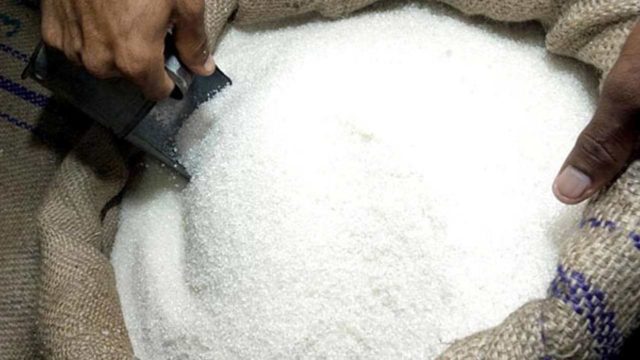The federal government has called on local and international investors to tap into the country’s sugar market estimated at $2 billion.
Executive Secretary and CEO of the National Sugar Development Council (NSDC), Kamar Bakrin, who made the call, noted that Nigeria’s annual sugar consumption is about 1.4 to 1.6 million metric tonnes.
Bakrin said that NSDC is embarking on the investment drive with the aim of significantly reducing Nigeria’s dependence on Brazil, from where it currently imports approximately 96% of its sugar needs.
According to him, the Nigerian sugar market, valued at an estimated $2 billion, presents a profitable venture for investors due to the strong, growing demand for domestic production.
He also pointed out that local production becomes even more advantageous amid currency fluctuations that make imports costly, making the shift to domestic production economically viable.
“The economics are compelling, with high Net Present Value and Internal Rate of Return at attainable scale, and available financing that aligns with business needs,” Bakrin said.
In line with its Backward Integration Plan (BIP), the federal government is actively developing policies and incentives to support local production and reduce reliance on imported sugar.
NSDC has introduced a community integration model encouraging investment in local development, where sugar project operators must invest in community-level projects, such as schools, clinics, and road construction, while also reserving managerial roles for local residents.
“This model ensures all stakeholders at the community level benefit, making the industry more secure and sustainable,” Bakrin added.
NSDC’s ambition is to tap into this $7 billion African sugar market while adding value to the Nigerian economy through high-value byproducts like ethanol, bioplastics, and packaging materials.
In preparation for expansion, the NSDC has declared 2025 as “the year of acceleration,” with a commitment to raise the necessary funds to support both local and global investors in their ventures within Nigeria’s sugar industry.
In 2022, the federal government extended the National Sugar Master Plan (NSMP) for another ten years, aiming to achieve annual production of 1.7 to 1.8 million metric tonnes of sugar by 2033, eliminating the $350 million spent annually on imports.





















